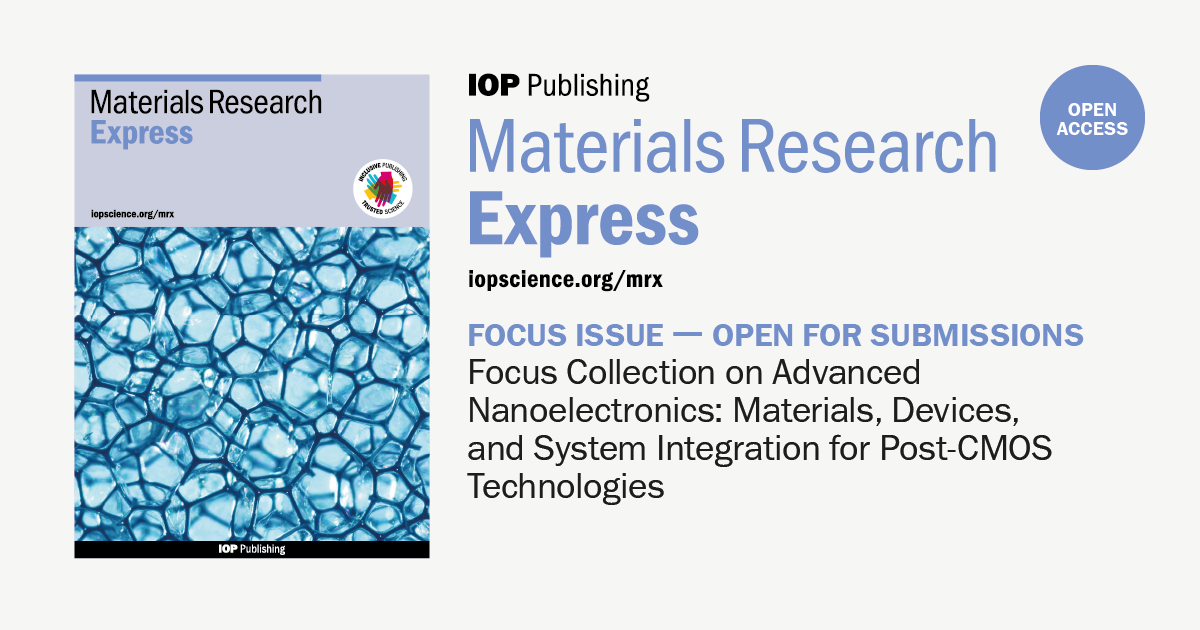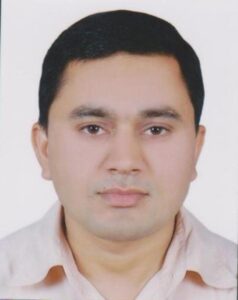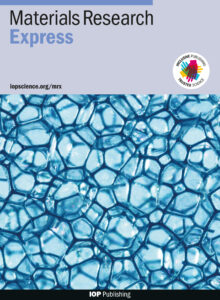MRX特刊征稿|Advanced Nanoelectronics

特刊详情
客座编辑

Rashi Nathawa
Manipal University Jaipur, India
- Dr. Rashi Nathawat serves as an Associate Professor of Physics at Manipal University Jaipur, India, bringing more than eleven years of distinguished teaching and research experience. She obtained her Ph.D. in Physics from the University of Rajasthan, Jaipur, where her doctoral research centered on the surface functionalization of polymers for industrial and biomedical applications. Dr. Nathawat previously held an Assistant Professorship at Manipal University Jaipur and completed a postdoctoral fellowship at the Indian Institute of Technology Bombay, where she advanced the design and fabrication of MEMS/NEMS-based sensors. Her research focuses on hybrid composites for functional uses and developing nanomaterial-based sensors. Specifically, her work includes synthesizing and applying nanocomposites—such as carbon nanotubes and semiconductor materials—and creating sensors for environmental and health monitoring. Dr. Nathawat is especially known for her expertise in surface modification of materials, particularly polymers, using advanced irradiation techniques. Her research also covers semiconductor processing and the fabrication of nanoelectronic devices. Her scientific contributions are documented in numerous peer-reviewed publications. She has obtained research grants from reputable funding agencies and received several awards and scholarships from well-known national and international organizations, highlighting the significance and recognition of her work in the scientific community.
 Bal Chand Nagar
Bal Chand Nagar
National Institute of Technology Patna, India
- Bal Chand Nagar is currently working as an Assistant Professor at the Department of Electronics and Communication Engineering, National Institute of Technology Patna, Bihar, India. He did his Ph.D. in Analog Integrated Circuit Design from the Indian Institute of Technology (ISM) Dhanbad, JH, India, M.Tech. (Microelectronics and VLSI Design) from SGSITS Indore (RGPV, Bhopal), MP, India, and B.E. (ECE) from MIT Mandsaur (RGPV, Bhopal), MP, India. His research interests include Analog and Mixed Signal IC Design, System Design and Architecture, Computational Circuits, Hardware Accelerators, and FPGA-based/ML-enabled VLSI System Design. He has published 30 research papers in various reputed journals and conferences. He has guided 2 Ph.D. students and 14 M.Tech students. At present, 8 Ph.D. students are carrying out their research work under his supervision. He is the Chief Investigator of the Chips-to-startups (C2S) project. He is a Senior Member of IEEE USA and a Life Member of IETE, ISTE, and IEI India.

Deepika Bansal
Manipal University Jaipur, India
- Dr. Deepika Bansal is an Assistant Professor in the Department of Electronics and Communication Engineering at Manipal University Jaipur, India. She holds a Ph.D. in VLSI Design from Manipal University Jaipur and an M. Tech. in VLSI Design from Banasthali University. With more than a decade of academic and research experience, she has made significant contributions to low-power digital circuit design, nanoelectronics, and HDL-based system modelling. Her work focuses on reducing power consumption through innovative circuit architectures and logic implementations using CMOS and CNTFET technologies. Dr. Bansal has authored numerous research papers, presented at international conferences, and holds patents in areas such as ternary inverter design and transistor sizing for improved circuit reliability. Her publications span topics including ternary and quaternary logic, power-efficient digital circuits, and advanced domino logic circuits. A Senior Member of IEEE since 2014, she actively contributes to the professional community by reviewing for reputed journals and conferences. Through her research, teaching, and mentorship, she continues to advance next-generation integrated circuit technologies.

This focus collection seeks original research contributions that address challenges and innovations in device modelling, quantum transport, flexible electronics, nanoscale interconnects, and hardware accelerators. The Collection particularly encourages interdisciplinary studies bridging material synthesis, device-level innovations, and system-level implementations.
Topics of interest include:
- Synthesis and integration of 1D/2D materials for nanoelectronic applications
- High-k dielectrics, ferroelectrics, and phase-change materials
- Emerging transistor technologies (Tunnel FETs, FinFETs, Nanowire FETs, NCFETs)
- Flexible, stretchable, and wearable nanoelectronics
- Neuromorphic computing and memristive devices
- Quantum transport, modeling, and simulation
- Computational circuits and hardware accelerators using emerging devices
- Nanoscale interconnects, heterogeneous, and 3D integration
- Radiation-hardened and thermally stable nanoelectronic devices
- Nanoelectronic sensors and biomedical system integration
- Low-power, energy-efficient, and sustainable nanoelectronic systems
投稿流程
特刊文章与MRX期刊常规文章遵循相同的审稿流程和内容标准,并采用同样的投稿模式。
有关准备文章及投稿的详细信息,可以参阅IOPscience页面的作者指南。
作者可登入期刊主页进行在线投稿,先选择“文章类型”,然后在“选择特刊”的下拉框中选择“Focus Collection on Advanced Nanoelectronics: Materials, Devices, and System Integration for Post-CMOS Technologies”。
投稿截止日期:2026年4月30日。
期刊介绍

- 2024年影响因子:2.2 Citescore:3.7
- Materials Research Express (MRX)采用快速出版的模式,发表各类功能材料在设计、制造、性能和应用方面的最新研究。从2020年起,MRX转变为金色开放获取出版模式,以最大限度地传播材料科学的所有领域的研究。文章内容包括:生物材料;纳米材料和纳米技术;碳的同素异形体和二维材料;电子材料;玻璃、陶瓷和非晶材料;磁性材料;金属和合金;光子材料和超材料;聚合物和有机化合物;智能材料;薄膜等。
